History of Izborsk
The first mention Izborsk town was made in 682. Russian Chronicles says that three Varangian knights - Rurik, Sineus and Truvor were called to Rusland for "rule and order in the troubles times". Junior brother Truvor has established his office at Izborsk. But the origin of the town dates to the VII—VIII th century, thereby Izborsk is more ancient than Pskov itself. Originally it was named Slovensk after the name of the local knight, and later it was renamed after the name of his son Izbor.
Izborsk town ("town" means a fortress in ancient meaning) was situated on the elevated stony plateau above Gorodischenskoe lake. The town was fortified by wooden palisade, rampart and ditch. There were probably few stone towers. The stone citadel ("detinetz") with hexagonal stone watch tower was inside of the fortress.
In 1233 knights of Livonia Order captured Izborsk. The cohort was gathered by Pskov Republic and send to Izborsk. They besieged Izborsk and Germans were knocked to pieces. In 1240 Germans captured the Izborsk once again. Again the united Izborsk and Pskov troops tried to free the fortress but failed. In 1242 Germans were beaten at last on the ice of Chudskoe Lake by Alexander Nevsky and were driven out from the territory of Pskov Republic.
In 1302 the fortress was moved to more convenient place - Juravja (Crane) mount in one half kilometer from the old place. The new wooden fortress had only a stone watch tower inside it's walls perimeter. The tower named Lukovka (or Kukovka) and had the secret passage to outside for sorties.
In 1330 stone fortress with local limestone was erected by Pskov's and Izborsk's stonecutters under Pskov's posadnik Sheloga control. The remains of that walls now used as a basis of present fortress. The Nikolskij cathedral inside the fortress was built in 1344. Beside of the cathedral there were numerous
"osadny dvors" (emergency dwellings) for covering the citizenry during of wartimes.
In the end of XIV century the fortress was reconstructed because of fire arms spreading. Its walls were heightened and its wall's width was increased. Five new towers ("kostry") were constructed. All of these fortifications are preserved till nowadays.
There were numerous storms and besieges since the fortress was moved to Juravja mount. The most fierce storms were in 1341, 1349, 1368 and 1480. No foes could grasp the fortress except the Germans in 1941-44.
In 1510 the Pskov Republic was broken and annexed by Muscoviteы. Since that times, Izborsk became a borderline fortress of Moscow state.
In the Time of Troubles, peoples of Izborsk were adherents of Lhze-Dmitrij (selfstyled Dmitrij) and antagonists of central power of Moscow and czar Vasilij Shuiskij. There were big uprising in 1607 and bloody fighting near to Pskov fortress, where the Izborsk's insurrectionists were badly beaten.
The decline of fortress began after the Northern War end with withdrawal of the state borders to the north and west. The fortress was moved out of the ranks and got the provincial city status ("uezd" city) in 1719.
From 1920 till 1940 Izborsk town was the part of independent Estonian state under the Irboska name. After annexation of Baltic States by USSR in summer 1940 it was returned to Russia. In 1941-44 the town was under German occupation and after 1945 Izborsk are on Pechorskij region of Pskov area.
Impressions
The fortress is a remarkable example of ancient Russian fortification. There are repaired works in the fortress nowadays. The Nikolskie gates and "zakhab" are in falsework. The Lukovka tower is restored entirely after the European standards and has a fixing fare for entrance (15 rubles = 0.5 euro).
The vicinities of Izborsk and environment are terrific! The stone crosses, monuments, walls, towers, lake, fountains, swans and wild-gooses... The Stary (Old) Izborsk settlement and it's old stone houses are very picturesque.
Land forts and fortress:
Bip Castle Gatchina Ivangorod Izborsk Kexholm Kirillov Monastery Koporye Novgorod Pechorskiy Monastery Peter&Paul Fortress Porkhov Pskov Schlisselburg Staraya Ladoga Tikhvin Vyborg Hameenlinna Hamina Kastelholm Kymenlinna Lappaenranta Raseborg Castle Savonlinna Tavetti Turku Visby Fredrikstadt Fredriksten Hegra Fort Hoytorp Fort Arensburg Narva Tallinn Antipatris Caesarea Jerusalem Latrun Fort Masada
Sea forts and fortresses:
Alexander Fort Ino Fort Krasnaya Gorka Fort Kronstadt: Kotlin isl. Kronstadt: North Forts Kronstadt: South Forts Trongsund Hanko Svartholm Sveaborg Marstrand Siaro Fort Vaxholm Oscarsborg
Artillery batteries and individual guns:
Coastal Artillery Hemso Fort
Fortified areas and defensive lines:
Karelian Fortified Area (KaUR) KrUR Leningrad Mannerheim Line Nevsky Bridgehead VT Line Harparskog Line Salpa Line Gothland
Russian
S e a r c h All news

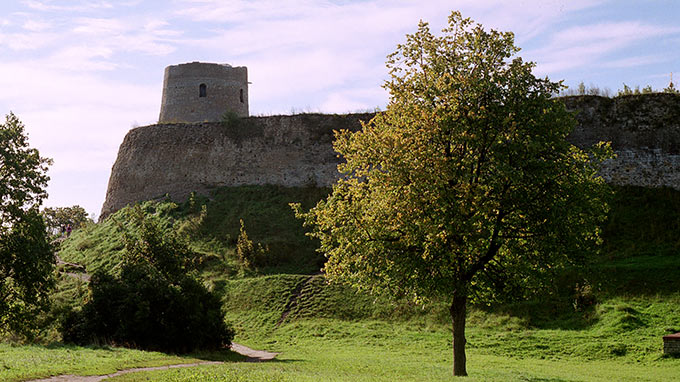
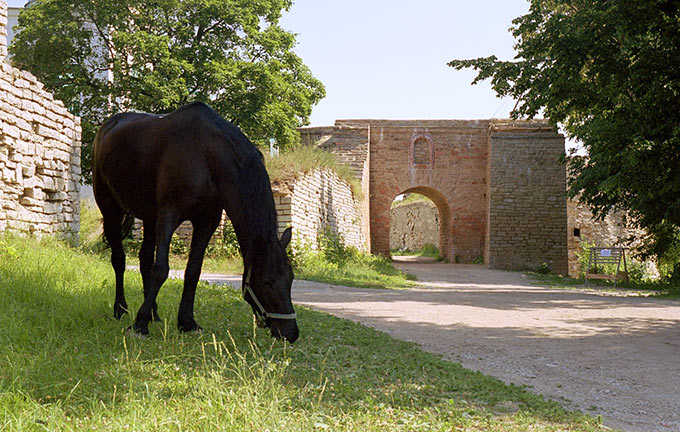
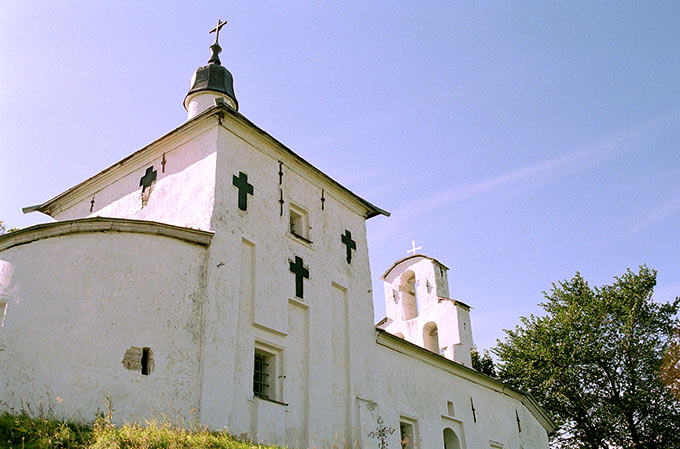
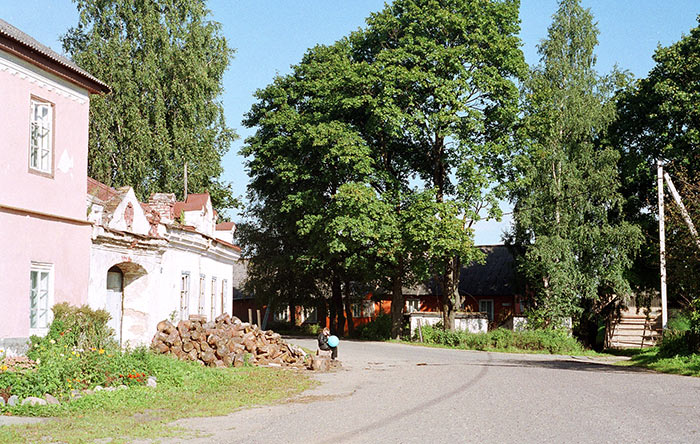 Streets of Old Izborsk
Streets of Old Izborsk
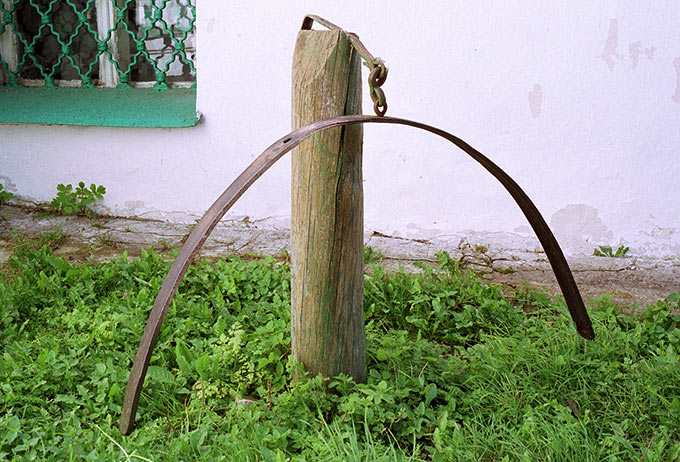 Local sound alarm and warning system.
Local sound alarm and warning system.
